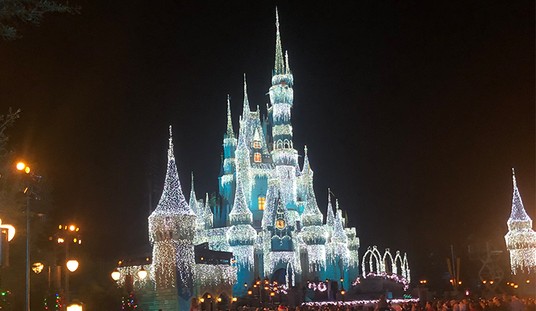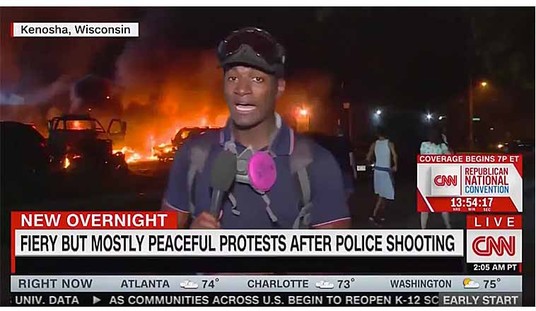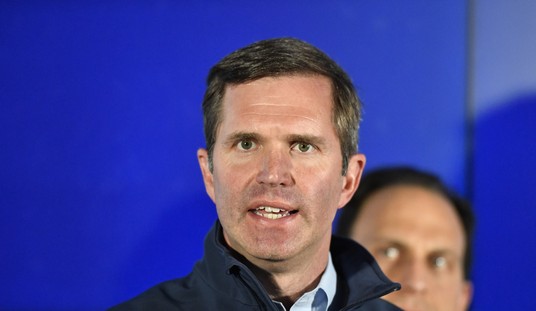“Special Presidential Envoy” and former Secretary of State John Kerry noted a couple of weeks ago that Russia’s invasion of Ukraine could distract the world from the climate change crisis while also having massive emissions consequences. Kerry of course stands with Ukraine, but he knows he needs Vladimir Putin onboard for his climate agenda, and he also doesn’t want to derail America’s cooperation with Russia on the Iran nuclear deal on which he worked so hard. Kerry’s right that Ukraine has distracted people from climate change hoaxsters like himself.
Robinson Meyer writes for The Atlantic that a nuclear war with Russia would not only kill tens of millions of people — it would be a disaster for climate change. We’re so old we remember that 1983 TV movie with Jason Robards, “The Day After,” which showed the effects of nuclear winter. So is it nuclear winter we’re talking about?
A nuclear war would kill tens of millions of people—and would also prove disastrous for climate change, writes @robinsonmeyer.https://t.co/dd8HAgGclc
— The Atlantic (@TheAtlantic) March 12, 2022
Meyer writes:
The hot, dry, hurricane-force winds would act like a supercharged version of California’s Santa Ana winds, which have triggered some of the state’s worst wildfires. Even in a small war, that would happen at dozens of places around the planet, igniting urban and wildland forest fires as large as small states. A 2007 study estimated that if 100 small nuclear weapons were detonated, a number equal to only 0.03 percent of the planet’s total arsenal, the number of “direct fatalities due to fire and smoke would be comparable to those worldwide in World War II.” Towering clouds would carry more than five megatons of soot and ash from these fires high into the atmosphere.
All this carbon would transform the climate, shielding it from the sun’s heat. Within months, the planet’s average temperature would fall by more than 2 degrees Fahrenheit; some amount of this cooling would persist for more than a decade. But far from reversing climate change, this cooling would be destabilizing. It would reduce global precipitation by about 10 percent, inducing global drought conditions. In parts of North America and Europe, the growing season would shorten by 10 to 20 days.
We’re still more concerned about the people in the blast zone.
@SirajAHashmi ✍️✍️✍️✍️✍️
— TJDMCR – 716 OG (@TJDMCR) March 12, 2022
Ok NOW I’m convinced nuclear war is bad
— Optimus Subprime (@NotaBot_Rollout) March 12, 2022
You're telling me global WARMING and nuclear WINTER don't cancel each other out????
— Sassy Politics 🌻🇺🇦 (@politic_sass) March 12, 2022
Where are the editors?
— Blame Big Government (@BlameBigGovt) March 12, 2022
If I'm vaporized why the hell would I care about climate change?
— Guybrush Tweetwords (@TruthfulBurns) March 12, 2022
🤦 I want to say it’s difficult to believe that someone wrote this and published it . . . but, sadly, it’s not.
— jon_d_brooks (@jon_d_brooks) March 12, 2022
One hour later and this is still up
— Ben Wojciechowski (@benwojo2723) March 12, 2022
So you’re telling me the 12 people left on earth will have difficulty with climate change? Good to know! Where will they go to read news about it?
— Cool J Weddings (@Cooljweddings) March 12, 2022
I can’t wait for the follow-up explainer on how a global thermonuclear holocaust would disproportionately affect people of color.
— Stars and Stripes (@StarznStrypz) March 12, 2022
But what about trans people?
— Holden (@Holden114) March 12, 2022
Is this seriously the only way that you think you can get your readership to care about the deaths of tens of millions of people?
— Dave Blood is Dead (@ElminsterD) March 12, 2022
✍️uh✍️oh✍️ pic.twitter.com/0LZ8oNZ2z7
— The List (@ListComesForAll) March 12, 2022
Climate change? Umm I think that’s about the last thing on the minds of Ukrainians.
— Alfred E. Newman (@notsobigkahuna) March 12, 2022
Holy cow. It’s a real headline. I saw @TheBabylonBee talking about it and thought it might be fake.
— John Cincinnatus (@CincinnatusJohn) March 12, 2022
It’s real.
Related:
Not a parody, part 2: John Kerry warns of the carbon footprint of Russia's invasion of Ukraine https://t.co/BMIke1yBAK
— Twitchy Team (@TwitchyTeam) February 24, 2022
























Join the conversation as a VIP Member